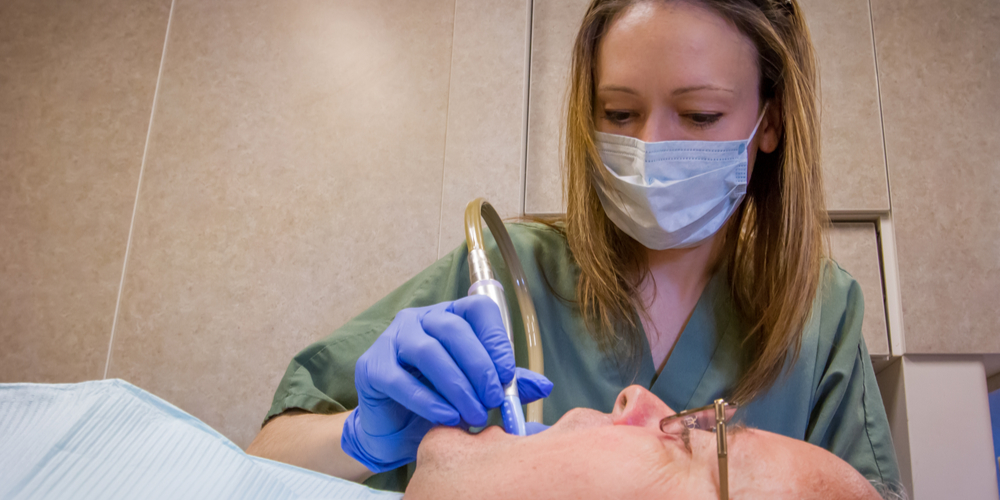What does a dental hygienist do?
Dental hygienists, who are also known as oral health practitioners, work as part of a team of dental experts. They are qualified to assist in the prevention and treatment of oral disease, with a main focus on gum health. They are qualified to perform the following duties:
- Scaling and polishing teeth, which helps to treat and prevent gum disease
- Applying fissure sealants to reduce tooth decay
- Taking dental x-rays, which dentists use to diagnose problems and determine the best course of treatment
- Helping patients to develop good oral health habits by offering advice on issues such as nutrition, how to reduce plaque and quitting smoking.
- Dental hygienists who work in hospitals also offer advice and assistance to patients who are having oral surgery or suffering from particular oral medical conditions
How do you become a dental hygienist?
You need to do a course that is approved by the General Dental Council (GDC), and complete either a Diploma in Dental Hygiene and Therapy (2 years full time) or a BSc in Oral Health Science (3 years full time). Some dental schools offer combined studies courses in dental hygiene and dental therapy. All qualified dental hygienists must be registered with the General Dental Council before being able to work in this field. You must be able to work well as part of a team, have excellent communication skills and a high level of manual dexterity.
Entry requirements
- 5 GCSEs grade A-C or equivalent, including English and a biological science
- 2 A Levels, preferably in science subjects and/or a recognised dental nursing qualification
- Some dental schools may also require you to have some dental nursing experience
Financial support
Applicants may be entitled to an NHS student bursary. If successful, you may get all of your fees paid and help with living costs.
Career Prospects
Dental hygienists work in NHS and private practice, community dental services and hospitals. Experienced dental hygienists could go into research and teaching roles, or become practice managers. Dental hygienists could also go on to work as orthodontic therapists, assisting the dentist in administering orthodontic treatment. Orthodontic therapists can also treat patients who need emergency treatment, by providing pain relief from an oral condition for example.
British Society of Dental Hygiene and Therapy (BSDHT)
What is the BSDHT?
The BSDHT is the internationally recognised organisation that represents dental hygienists and therapists. It was established over 60 years ago and has more than 3,500 members in the UK and elsewhere.
What does the BSDHT do?
- Protects the professional interests of its members
- Provides support to members on issues that affect the working lives of dental hygienists and therapists
- Offers career advice to its members and help finding employment
- Keeps members up to date with issues that affect the profession

